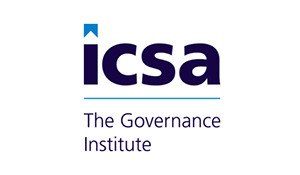Pursuing higher education abroad is a dream for many, but the financial burden can be significant. For most students, securing a scholarship can be a game-changer, helping to cover tuition fees, living costs, and other expenses. However, scholarships are highly competitive, and obtaining one requires strategic planning and effort. Here are nine essential tips to increase your chances of securing a scholarship to study abroad.
1. Scholarships Are Usually Available After Admission
When planning to study abroad, it’s crucial to ensure you can cover your expenses without relying solely on a scholarship. Most universities only offer scholarships once your admission is confirmed. If you secure one later, you can use the funds to repay a portion of your education loan or manage additional living expenses.
Additional Read: What Are Some of the Challenges of Taking an Education Loan?
2. Scholarships Rarely Cover All Expenses
Even if you are awarded a full scholarship, it may not cover all your costs. Expenses such as books, travel, health insurance, and daily living costs are often not included. Consider exploring personal loans or other financial options to manage these additional expenses.
3. Explore Diverse Scholarship Sources
Beyond universities, many private foundations, government organizations, and international bodies offer scholarships for students pursuing education abroad. Regularly check reputable websites and scholarship portals to identify and apply for opportunities from multiple sources.
4. Apply for Multiple Scholarships
Don’t limit yourself to just one scholarship application. Apply for as many scholarships as you qualify for – even small awards can help reduce your overall financial burden. Being proactive and casting a wide net increases your chances of securing financial assistance.
5. Avoid Scholarship Scams
Be cautious of fraudulent schemes promising guaranteed scholarships in exchange for fees. Legitimate scholarships do not require payment to apply. Always verify the authenticity of the scholarship program through official sources before proceeding.
6. Showcase Confidence in Your Application
Many scholarships require you to submit essays or personal statements explaining why you deserve the award. Use this opportunity to highlight your academic achievements, extracurricular activities, volunteer work, and professional experiences. Craft a compelling narrative that sets you apart from other applicants.
7. Keep Thorough Records
When applying for a student visa, you will need to provide evidence of your financial resources. Maintain organized records of all scholarship applications, awards, and related correspondence to present as proof if required.
8. Start Early
Begin researching and applying for scholarships at least 18 months before your course starts. Universities often provide limited time to secure funding after admission, so early preparation is key to ensuring you have the necessary resources.
9. Have a Backup Plan
Not all scholarship applications will succeed, and it’s important to be prepared for that possibility. Develop a backup plan to fund your education through other means, such as personal savings, family support, personal loans, or alternative student financing options. Your dream of studying abroad should not be solely dependent on securing a scholarship.
While obtaining a scholarship to study abroad can significantly ease financial stress, it requires careful planning, persistence, and a proactive approach. By exploring diverse funding sources, applying early, and maintaining a flexible mindset, you can enhance your chances of turning your study-abroad aspirations into reality.








